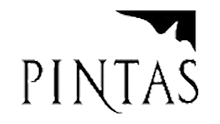
The introduction of the new Enterprise Innovation Scheme (EIS) launched by the Singapore government has been announced in Budget 2023 as a measure to encourage businesses to participate in research and development, innovation, and capability development activities. The EIS provides funding and support to help SMEs develop and implement innovative solutions that improve their productivity and competitiveness.
Under the EIS scheme, to be eligible for the EIS, companies must meet certain criteria, such as being registered and operating in Singapore, having a minimum of 30% local shareholding, and having a maximum group revenue of S$100 million or maximum employment size of 200 employees.
What is the qualifying period for EIS?
The qualifying period for the EIS is from the Year of Assessment (YA) 2024 to YA 2028. During this period, eligible businesses can claim tax deductions of up to 400% or cash payouts for qualifying expenditures incurred in activities such as research and development, innovation, and capability development activities.
What are the qualifying activities for tax deduction under EIS?
The government has increased tax deductions for five significant activities in the innovation process to foster and maintain innovation in Singapore. These activities include
| No. | Qualifying Activities | Amount of Tax Deduction (from YA 2024 to YA 2028) | Specific condition applicable |
| 1 | Qualifying research and development (R&D) projects conducted in Singapore | First $ 400,000 of the qualifying R&D expenditure- 400% tax deduction Balance of qualifying R&D expenditure in excess of $400,000 – additional 150% tax deduction | An R&D project is considered eligible if it involves cutting-edge technology that exceeds the current technical knowledge in a scientific or technological domain. This excludes ordinary alterations, quality control, and standard testing procedures. For the R&D project to be entitled to tax incentives, it should fulfil the criteria set out under Section 14D and Section 15 of the Income Tax Act. |
| 2 | Qualifying costs for intellectual property registration | First $ 400,000 of the qualifying IP registration costs – 400% tax deduction Balance of qualifying IP registration costs in excess of $ 400,000 – 100% tax deduction | Businesses must meet the one-year ownership requirement for the related Intellectual Property registration that are registered to be eligible for the enhanced tax deduction and the opportunity to convert qualifying expenses into a cash payout. For each year of assessment, the ability to receive a cash payout in exchange for registration is determined on a per-registration basis, with a maximum of $100,000 in qualifying expenses allowed for all qualifying activities. It should be noted that, after the conversion of qualifying expenses into cash, the same amount is no longer eligible for tax deductions or allowances. |
| 3 | Acquisition and licensing of intellectual property rights | First $ 400,000 (combined cap) of the qualifying intellectual property acquisition costs and/or qualifying intellectual property licensing expenditure plus – 400% allowance and/or tax deduction Balance of qualifying IP acquisition costs in excess of claim for enhanced allowances plus- 100% writing down allowance (“WDA”) Balance of qualifying IP licensing expenditure in excess of claim for enhanced tax deduction- 100% tax deduction | The total amount of qualifying intellectual property acquisition costs and qualifying Intellectual property licensing expenditure eligible for both the enhanced WDA and enhanced tax deduction is capped at $400,000 for each relevant YA (calculated based on the net amount of qualifying expenditure incurred by the business after deducting any Government grant or subsidy received for the acquisition and licensing of Intellectual property.) Only businesses with annual revenue of less than $500 million during the basis period of the year of claim are eligible for the new enhanced WDA and enhanced tax deduction. For the acquisition of intellectual property, companies and partnerships must meet the one-year ownership period requirement in order to qualify for the enhanced WDA and the opportunity to convert qualifying expenditure into a cash payout for the acquisition of intellectual property. The one-year ownership period requirement is not applicable to licensing of Intellectual Property. |
| 4 | Qualifying training expenditure | First $ 400,000 of the qualifying training expenditure – 400% tax deduction Balance of qualifying training expenditure in excess of $ 400,000 – 100% tax deduction | To be entitled for an enhanced tax deduction, the qualifying training expenditure must incur on courses that are eligible for SkillsFuture Singapore (SSG) funding and aligned with the Skills Framework. The list of eligible courses is available on go.gov.sg/eis-training. |
| 5 | Innovation projects in collaboration with polytechnics, the Institute of Technical Education, or other qualified partners. | First $ 50,000 of the qualifying innovation expenditure – 400% tax deduction | To qualify for the tax deduction, the business must be the beneficiary of the qualifying innovation project. In the context of the EIS, innovation projects that meet the qualifying criteria primarily include one or more of the innovation activities as defined in the Oslo Manual 2018. Partner institutions will be responsible for validating projects as qualifying innovation projects and issuing invoices for them. Only expenditures incurred in collaboration with the partner institutions will be eligible for this tax deduction; any expenditure outside this collaboration will not qualify. |
Conclusion:
The EIS is a valuable program that provides funding and support to Singaporean businesses looking to develop and implement new technologies and innovative solutions. By helping businesses stay competitive, improve productivity, and access expertise, the EIS is playing a key role in Singapore’s economic growth and success.
The Inland Revenue Authority of Singapore (IRAS) will release more information about the EIS before June 30, 2023. If you’re a Singaporean business looking to innovate and grow, the EIS may be just the program you need to take your operations to the next level. For assistance in identifying qualifying expenses and optimizing your claim, contact us!
